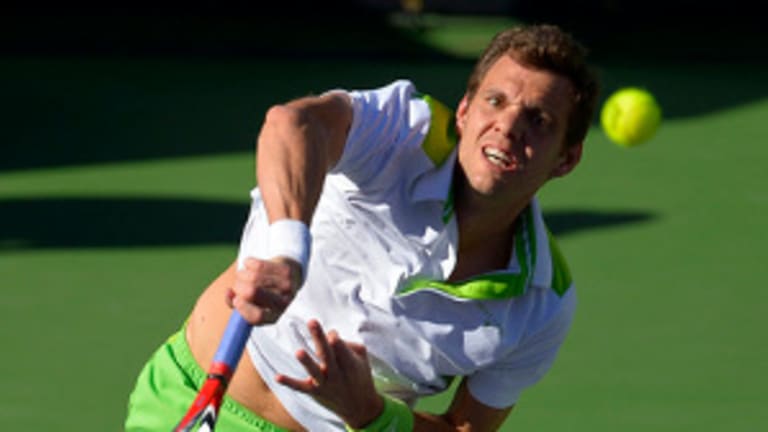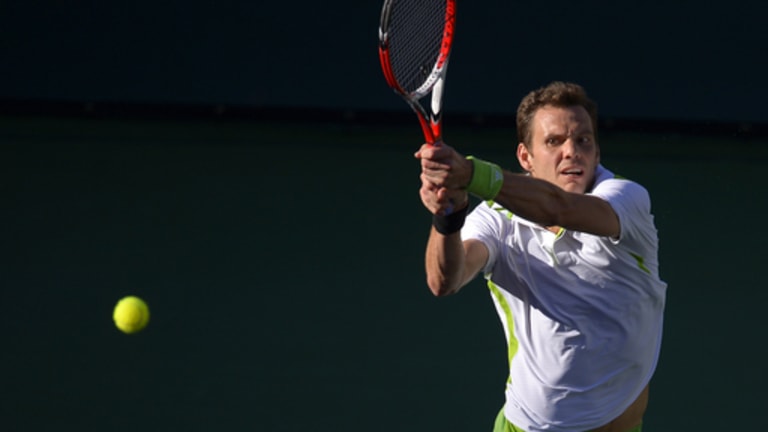The eight men’s wild cards at the French Open, similar to the three other majors, are a mixture of youth and experience, with most coming from the host nation.
Frances Tiafoe, just 17, garners much attention, especially from a U.S. perspective. Thanasi Kokkinakis, according to many, joins Tiafoe in having a future as bright as the lights illuminating the Eiffel Tower at night.
Nicolas Mahut rests at the other end of the career spectrum. The Frenchman has, over the past five years, become much more than the vanquished in the longest tennis match of all time.
Then there is Mahut’s good friend and fellow 33-year-old, Paul-Henri Mathieu, whose matches at Roland Garros are habitually accompanied by cries of “Allez, Paulo” from the stands. Mathieu hopes the upcoming fortnight isn’t his last in Paris, but given his age and injury history, he knows there’s no guarantee he’ll return in 2016.
“I want to enjoy it and will play it like it’s my last one,” Mathieu, ranked No. 123, said in a telephone interview.
The tennis gods perhaps owe Mathieu a little.
If you thought Mahut had it tough by being on the wrong end of John Isner’s 70-68 fifth set at Wimbledon in 2010, one can argue with success that the agony of that day for the serve-and-volleyer pales in comparison to Mathieu’s career-long plight, both on and off the court.

